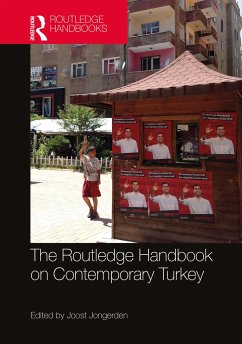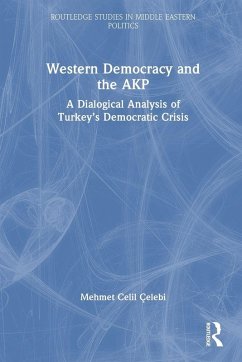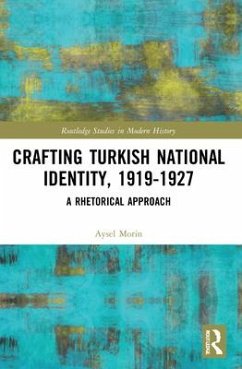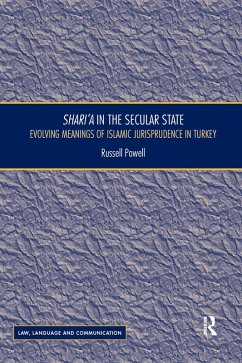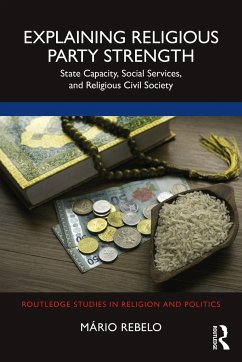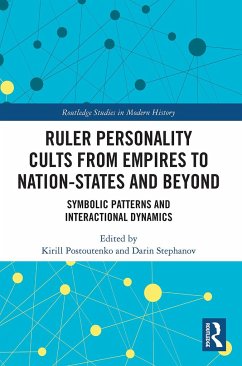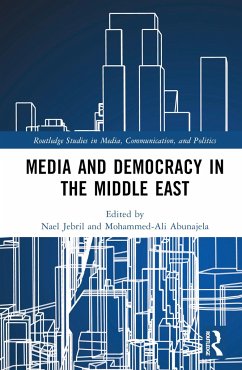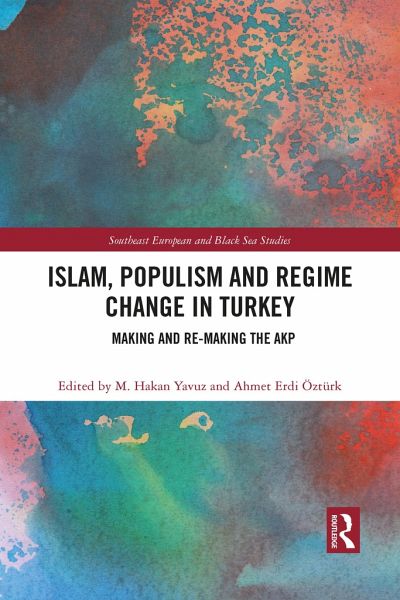
Islam, Populism and Regime Change in Turkey
Making and Re-making the AKP
Herausgegeben: Yavuz, M. Hakan; Öztürk, Ahmet Erdi
Versandkostenfrei!
Versandfertig in 6-10 Tagen
45,99 €
inkl. MwSt.

PAYBACK Punkte
23 °P sammeln!
Islam, Populism and Regime Change in Turkey explores the role of religion (Sunni, Hanefi Islam) in the transformation of Turkey under the reign of President Recep Tayyip Erdogan and his Justice and Development Party (Adalet ve Kalkinma Partisi, AKP).The chapters argue that the Turkish understanding of secularism was also one of the building blocks and the constitutive elements of Turkey's modernization until the rise of the AKP. Currently, however, it seems that religion has become a new or re-born element of the new Turkey and has been transforming many areas such as: the media, the Kurdish i...
Islam, Populism and Regime Change in Turkey explores the role of religion (Sunni, Hanefi Islam) in the transformation of Turkey under the reign of President Recep Tayyip Erdogan and his Justice and Development Party (Adalet ve Kalkinma Partisi, AKP).
The chapters argue that the Turkish understanding of secularism was also one of the building blocks and the constitutive elements of Turkey's modernization until the rise of the AKP. Currently, however, it seems that religion has become a new or re-born element of the new Turkey and has been transforming many areas such as: the media, the Kurdish issue, implementation of the rule of law, foreign policy and gender issues. This book therefore aims to scrutinize the question: how does a religion-based transformation in Turkey influence the raison d'etat of the state, and effect in various ways different areas such as gender, foreign policy, economy and socio-political relations of various power groupswithin the society?
Islam, Populism and Regime Change in Turkey will be of great interest to scholars of Religion and Politics, and governance in Turkey. It was originally published as a special issue of Southeast European and Black Sea Studies.
The chapters argue that the Turkish understanding of secularism was also one of the building blocks and the constitutive elements of Turkey's modernization until the rise of the AKP. Currently, however, it seems that religion has become a new or re-born element of the new Turkey and has been transforming many areas such as: the media, the Kurdish issue, implementation of the rule of law, foreign policy and gender issues. This book therefore aims to scrutinize the question: how does a religion-based transformation in Turkey influence the raison d'etat of the state, and effect in various ways different areas such as gender, foreign policy, economy and socio-political relations of various power groupswithin the society?
Islam, Populism and Regime Change in Turkey will be of great interest to scholars of Religion and Politics, and governance in Turkey. It was originally published as a special issue of Southeast European and Black Sea Studies.





